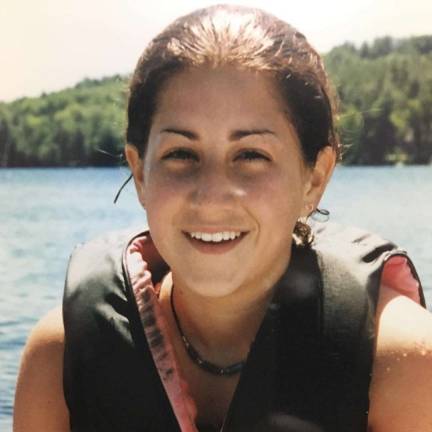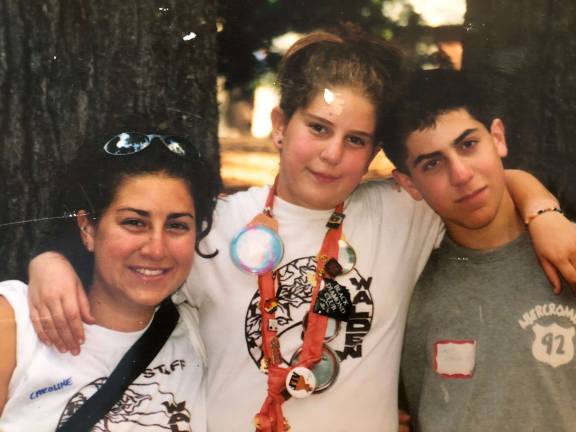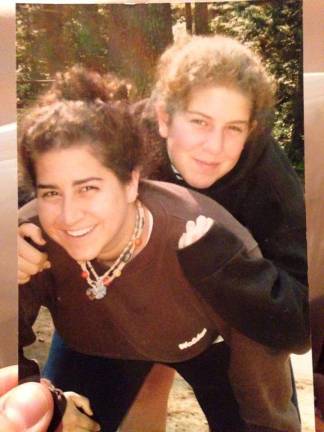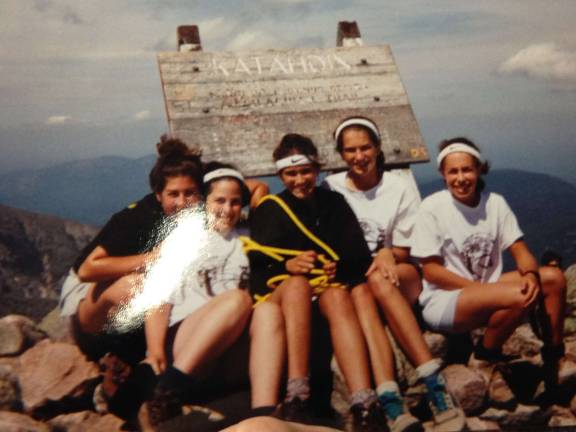How Summer Camp Made Me Who I Am




When I was 15 years old, I hiked the top of the Appalachian Trail. It was my last summer as a camper at sleepaway camp and the oldest age group always climbed Mount Katahdin in Maine.
As my bunkmates and I ascended into the sky bearing our bulky late-1990s frame-packs. I began experiencing horrible cramps. I had an ulcer in my stomach, and a bruise at the base of my esophagus. It was the result of bulimia, which I’d developed just before heading to camp two summers prior. I’d had an eating disorder since I was 11.
I asked the counselors if we could stop. The weight of my pack made the pain unbearable. And the weight of my perfectionism made reaching the top of Katahdin a non-negotiable goal, even though I’d bailed midway through our practice hike a few weeks earlier and descended with one of my counselors before making it to the top with everyone else.
The counselors had us pause. My bunkmates and me had sorted a week’s worth of food and cooking supplies among ourselves, and they redistributed my load amongst themselves. They lightened my load. We hiked onward. I got to touch the sky.
Of the myriad meaningful stories I accumulated throughout my nine, 8-week summers at sleepaway camp — five as a camper and four as a counselor — from the countless life-altering moments and experiences that shaped who I am, this moment has always struck me as the epitome. Not only did my bunkmates physically lighten my load that summer day in 1998, they also have been metaphorically lightening my load ever since.
I went to a predominantly all-girls camp in Denmark, Maine — Camp Walden, founded in 1916. My mom was a camper in the 1960s. My dad, too, had gone to camp. My sister was a camper in the 2000s while I was a counselor. She went on to become head counselor for many years. My brother went to camp. My aunts and uncles and cousins on both sides all went to camp. And we all went to day camp before shuttling off for two months every summer with stuffed duffel bags and shower buckets and all the other requisites. Camp is part of my blood. It was inevitable I would go, but it wasn’t inevitable that it would shape my life.
Camp is not an untainted white picket fence of peace and love. Kids get homesick. Not everyone experiences unmitigated bliss, either at the time or, through nostalgia’s lens, retrospectively. I know plenty of kids who got bullied and picked on at camp — both at mine and elsewhere. It’s not a guaranteed safe space. But I also think camp gives us a better shot at learning how to navigate the best innate human kindness has to offer, beyond the potentially challenging dynamics of school or family or the outside world. It’s an intentional, intimate space.
I also know I am one of many people for whom sleepaway camp was a formative experience. Camps come in all shapes and forms. I happened to go to a private camp — albeit one of the most rustic of its kind: It had no electricity or hot water in the cabins, and only screens for windows rather than glass — which I recognize was a particular privilege allotted to me in how camp shaped my life. Still, there are countless accessible and affordable options for camps around the country — arts-focused, religious, nonprofit and scholarship-based.
And still, I count not only the relationships I built at camp, but also how I learned to build all relationships in my life as the greatest privilege I gained from camp.
In both middle and high school, I always distinguished between my “camp friends” and my “home friends.” Then I got to college and realized I made new friendships that felt like my friendships at camp, and that even my friendships from growing up felt like camp friendships too. I realized that because of how I learned to build relationships at camp — friendships rooted in lightening one another’s metaphorical loads — every relationship in my life feels like camp.
In fact, my whole life feels like the sacredness of what I used to only touch for eight epic weeks among the pines trees of Maine. I even credit the self-esteem and confidence I built at camp with what later became the infrastructure for my ultimate recovery from that eating disorder. Camp was my playground for discovering my core; my strengths and my vulnerabilities; my weaknesses and my fears; my nuances and my quirks; my indefatigable zest for friendship and life.
Even now, in my mid-30s, camp is still my lifeline to myself. It is nothing short of the honest truth when I say that everyone should go to camp. Living with people at a young age and developing into a teenager who understands how to lighten a peer’s load can undoubtedly change the world.